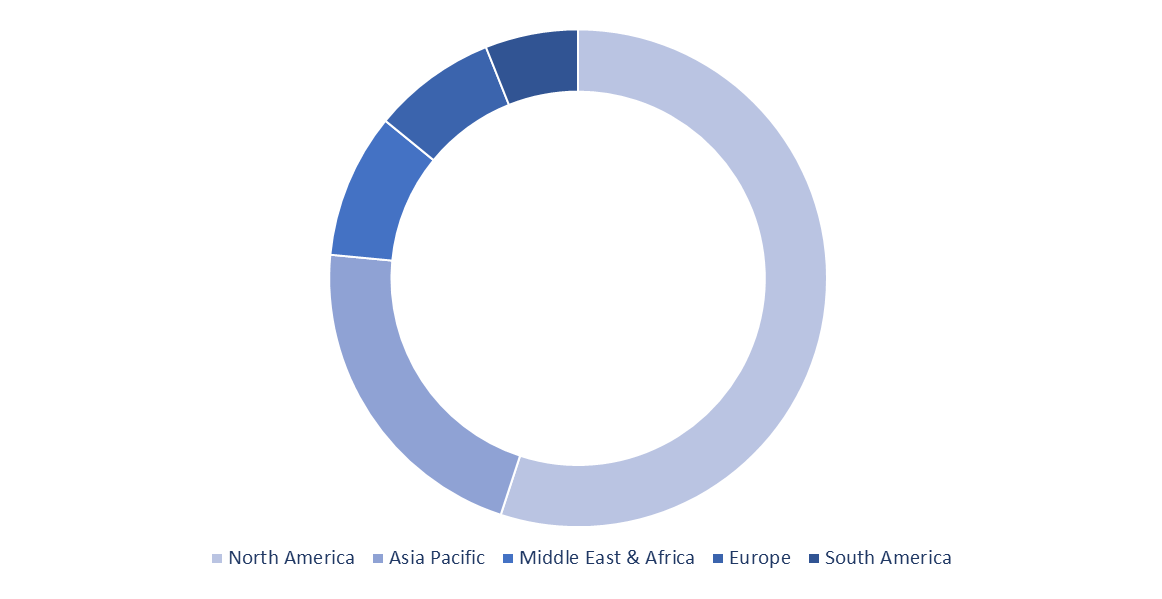Distributed Fiber Optic sensing alludes to a novel technology which empowers real-time and consistent estimation of different actual lines combined with length of the optical fiber. These optic sensors are used to screen basic functions or foundation. Use of optic sensing has expanded significantly across different business area including auto, aviation, construction industry, energy, and others. Different sorts of sensing advances are made in this field, for example, Raman Impact based and Rayleigh's impact-based sensing have evident operational capacities.
Developing interest for a smart and power proficient centralized observing model with an undeniable degree of mix is required to instigate the interest over the conjecture time frame. Developing awareness about the advantages of DFOS in developing regions is projected to additionally lift the market. The DFOS sensors are used for estimating a wide assortment of specialized parameters, going from substance synthesis to mechanical estimations, for example, strain and temperature sensing, and fluid level observing, among others. These sensors are powerful, impervious to electromagnetic obstruction, and lightweight and thus are broadly utilized.
Developing optics-based technology constructions, a dependability on distributed fiber optic sensors and expanding interest for oil and gas and structural designing businesses have been driving the worldwide Distributed Fiber Optic Sensing Business sector. While complex establishment, repair, and replacement concerns may distress the general development of the market at a worldwide level.
North America is relied upon to surface as the main region as far as income generated through market over the estimated period of 2020-2030 is concerned. This development of the region is attributed to the rising selection of the fiber optic sensing technology across different verticals, including the oil and gas area.

Global Distributed Fiber Optic Sensing Market Value Share Analysis, by Geography (2022)
The report titled “Global Distributed Fiber Optic Sensing Market - Global Market Share, Trends, Analysis and Forecasts, 2023-2032” wherein 2021 is historic period, 2022 is the base year, and 2023 to 2032 is forecast period. Additionally, the study takes into consideration the competitive landscape, wherein the report would provide company overview and market outlook for leading players in the global distributed fiber optic sensing market. Furthermore, the report would reflect the key developments, global & regional sales network, business strategies, research & development activities, employee strength, and key executive, for all the major players operating in the market.
The global distributed fiber optic sensing market is segmented based on Operating Principle type, fiber Type, application type, end-use industry and region. Based on Operating principle type, the market is classified into OTDR, OFDR. Based on Fiber Type, the market is classified into Single-Mode, Multimode. Based on application type is segmented into Temperature Sensing, Acoustic Sensing, Others. Based on End-use Industry type, the market is classified into Oil and Gas, Power and Utility, Safety and Security, Industrial, Civil Engineering. Based on geography, the global distributed fiber optic sensing market is segmented into North America, Europe, Asia Pacific, Middle East & Africa, and South America. North America is sub-segmented into the United States, Canada, and Rest of North America. Europe is sub-segmented into Germany, United Kingdom, Italy, France, Spain, and Rest of Europe. Asia Pacific is sub-segmented into China, Japan, India, Australia, and Rest of Asia Pacific. Middle East & Africa is sub-segmented into Saudi Arabia, UAE, South Africa, and Rest of Middle East & Africa. South America is sub-segmented into Brazil and Rest of South America.
The research provides in-depth analysis of prominent players holding majority share of the global market with a focus on all operating business segment and would identify the segment of the company focusing on global distributed fiber optic sensing market. Further, market share of prominent companies in the global distributed fiber optic sensing market would also be estimated.
The study takes into consideration the key competitive information such as business strategy, product portfolio, key development, swot analysis, and research and development focus of all the Distributed Fiber Optic Sensing companies. The global distributed fiber optic sensing market study would take into consideration the participants engaged throughout the supply chain and value chain of the market, along with their contribution. Product portfolio would focus on all the products under the Distributed Fiber Optic Sensing business segment of the company. Similarly, the recent development section would focus on the latest developments of company such as strategic alliances and partnerships, merger and acquisition, new product launched and geographic expansion in the global distributed fiber optic sensing market.
The key players of the global distributed fiber optic sensing market are AFL,xAP Sensing GmbH, Bandweaver, Brugg Kabel AG, Halliburton, Luna Innovations Incorporated, OFS Fitel LLC., Omnisens, Schlumberger Limited, Yokogawa Electric Corporation.
Global Distributed Fiber Optic Sensing Market Key Segments:
By Operating Principle Type
By Type
- Single-Mode
- Multimode
- Others
By Application Type
- Temperature Sensing
- Acoustic Sensing
- Others
By End-use Industry Type
- Construction
- Oil and Gas
- Power and Utility
- Safety and Security
- Industrial
- Civil Engineering
- Oil and Gas Monitoring
- Agriculture Management
- Others
By Region
- North America
- U.S.
- Canada
- Rest of North America
- Europe
- Germany
- UK
- France
- Spain
- Italy
- Rest of Europe
- Asia Pacific
- Japan
- China
- India
- Australia
- Rest of APAC
- Middle East & Africa
- UAE
- South Africa
- Saudi Arabia
- Rest of MEA
- South America
- Brazil
- Rest of South America